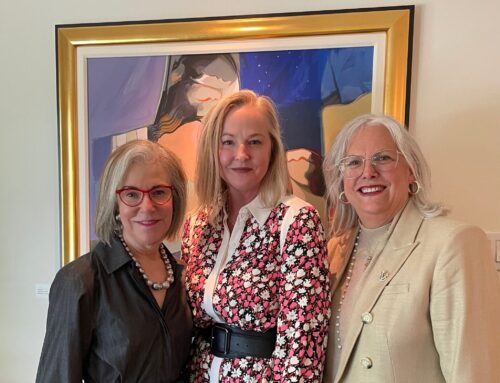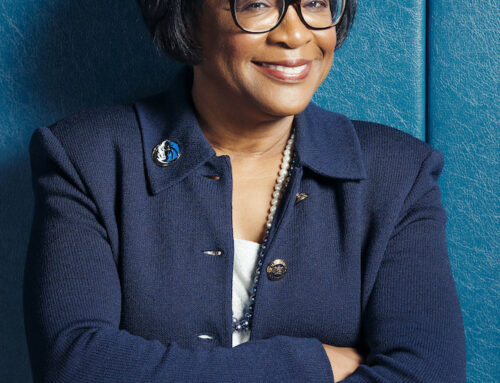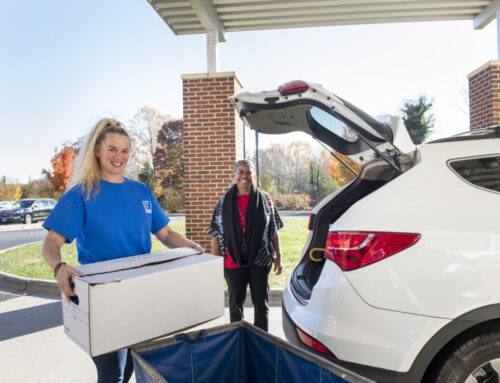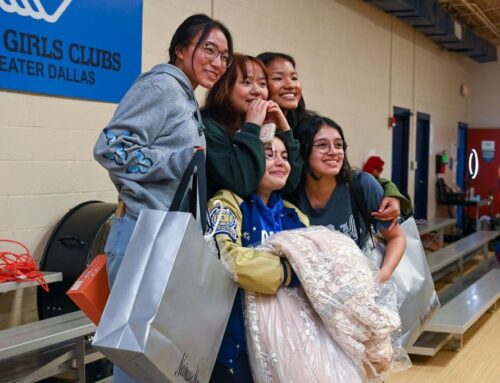It’s 9 a.m. in a Dallas County courtroom, as a group huddles around the judge’s bench. Among them a woman, barely 20, hangs her head. The hair that falls around her face needs washing; her sweatshirt smells unclean. She wipes a hand under her eyes, then to her jeans.
“Are you Karen Smith?” the judge asks.
“Yes.”
“Are you the mother of 5-year-old Jessica Smith, 3-year-old Terrence Smith and 1-year-old Crystal Smith?”
“Yes.”
The questioning continues a few minutes more, and then the courtroom falls silent. The judge takes a breath before speaking again: “OK, I want a drug test and psychological evaluation of Mrs. Smith. And parenting classes. Full medical and psychological evaluations of the kids, who will remain in foster care. And I want CASA on this one.”
The judge closes the file with her left hand as she reaches for another with her right. “Next case.”
The hearing, one of several to decide if the Smith kids will ever go home again, is over.
In Dallas County, scenes like this one play again and again, day in and day out. The judge won’t see the defendants again until the next hearing. The Child Protective Services [CPS] caseworker will do his best for the kids, but he has more than a hundred others to track.
The newly assigned Dallas CASA (Court Appointed Special Advocates) volunteer, however, has just one thing on her mind.
With the help and supervision of a Dallas CASA staff member, she’ll do whatever it takes to make sure the kids don’t fall through the cracks of an overburdened legal system. She’ll work on that case, and only that case, until the children are permanently placed in a home.
And being a volunteer, she won’t be paid a dime. What she will get is the knowledge that she made a difference in the lives of three children.
Neighborhood resident Peggy Allen is one such volunteer. She made the decision to become an advocate shortly after her husband died. At the time, Allen says, “there was just an enormous void in my life. I had too much time between 5 and 10 each evening, and I had seen every movie in town, at least three times.”
When a friend asked her how she was doing, Allen told her the truth: not very well. The friend told her about Dallas CASA, a group that assigns volunteers to assist abused and neglected kids while in protective care, and Allen called them the same day. Three weeks later, she began training. Now, three years later, she is quick to sum up how it’s gone: “It’s just wonderful. It’s the most fulfilling thing I’ve ever done in my life.” The best part, Allen says, is knowing she’s making a difference.
“It’s such an honor to be able to make a difference in the life of a child who starts out at a disadvantage. The kids whose parental rights have been terminated are worse than orphans. They had parents, but the parents either didn’t want them or mistreated them so badly the court took them away. They feel like discards.”
Just how has she made a difference?
“Mostly I think I’ve made them feel special when they didn’t feel special before – I make them feel loved, that somebody really cares about them.”
Allen knows she’s made a particular impact in the life of John, one of her CASA charges.
“John was practically on his way to a residential treatment center in Houston, where they have 24-hour supervision due to behavior problems,” Allen says.
“He had been in four or five foster facilities, mostly because of his behavior. But I knew this wasn’t right for him. He was right on the edge, and I knew this would have really put him over it. He’d have been lost to society. CPS has the experts; they have training and education that I don’t. But I knew John.”
At the hearing, CPS recommended the transfer. But Allen, having brought his therapist, foster dad and teacher with her, told the judge she hadn’t given up on John. She thought there had to be something better. After hearing Allen’s arguments, the judge delayed the decision for three months.
Those three months gave John some time. Allen told him this was his only chance; he had to start behaving better. John changed therapists and was placed in a new foster home. And his behavior began to improve.
Today, at 13, John is doing well in a foster home he loves, living among other kids he now calls brothers. Given his age and background, he’s one of thousands of children who probably won’t be adopted. But Allen hopes John can stay where he is until he “ages out” of the system at 18. And she’ll be there until he does, because CASA stays with the children until they’re released from protective care. But Allen says she’ll be there even longer.
“It won’t stop there,” she says. “John is my friend. I have him for life.”
Larry Dolan, a neighborhood resident who works as a substitute teacher at St. Rita Catholic School, decided to become an advocate five years ago. After a 25-year career in sales, Dolan was looking for work with more meaning. When he read a CASA ad in the newspaper, he decided to train as an advocate.
Dolan says most of what he does involves making sure children aren’t lost in the system. He investigates the facts of the case and tells the judge what he has found. But he also does a myriad of other things, such as making sure kids have their medications, are doing well in school and are receiving the counseling they need. Basically, he does the kinds of things parents usually do.
“But we don’t try to be their parent,” he says. “That’s always clear.”
Like Allen, Dolan says the most rewarding part of this work is knowing he makes a difference to the children he works with. Often, it’s just by being consistent.
“There’s so much turnover at CPS. It’s a sad thing when a 4- or 5-year-old looks up at you and asks, ‘Are you my new caseworker?’ I had no idea what that meant when I was a kid.”
Dolan is quick to add, however, that he’s supportive of CPS employees.
“CPS really gets a bad rap,” he says. “But I’m truly flabbergasted with the dedication and commitment they have. They just don’t have enough caseworkers, and it’s totally impossible to get everything done. They find themselves always having to fight the biggest fire.”
Because of the shortage of foster facilities in Dallas County, kids are often placed out of town. Many cases are turned over to a CASA supervisor when this happens, but Dolan stays with them, determined to be a consistent presence in their lives. So if a child is moved to Amarillo, he goes to see them in Amarillo. And he does this in spite of the fact that there’s no reimbursement for travel expenses.
“It’s OK,” he says. “You just do it.”
The hardest thing about being an advocate?
“Well,” he says, “I’ve never really looked at it like that. I guess it’s the frustration of seeing people who just won’t or can’t do what they need to do for their children.”
And the best thing? “It’s got to be the kids. You know, kids are kids, no matter what. They’re just great.”
The stories Allen and Dolan tell aren’t unusual, says Beverly Levy, executive director of Dallas CASA and a Preston Hollow resident.
“Many people come here wanting to help a child,” she says. “And they have no idea what it will do to them. Being a part of this is really remarkable. It teaches you that no matter what life throws you, opportunities are still ahead.”
It also offers a first-hand look at the compassion and dedication at work, she says.
“You see the best and the worst of life here. You see the worst of it in what the children have been through, but you see the best of it in our volunteers and our staff. I’m truly overwhelmed in the midst of such good souls.”






